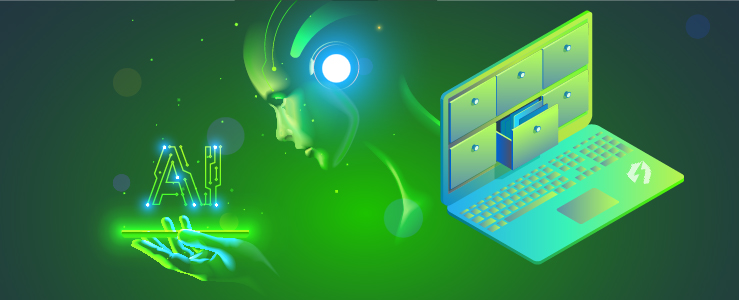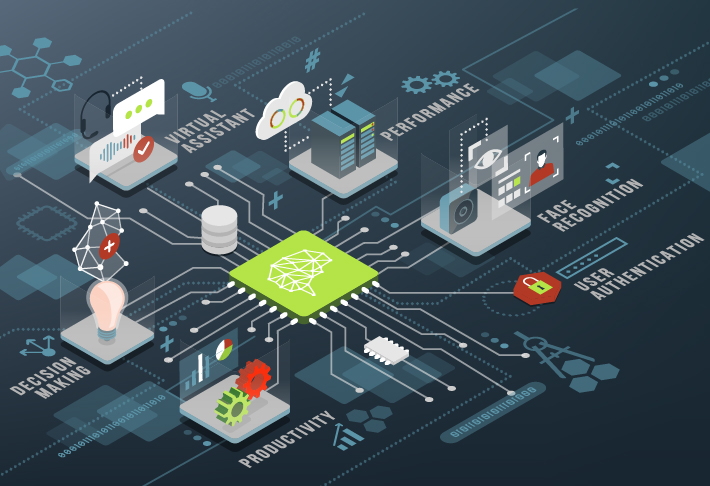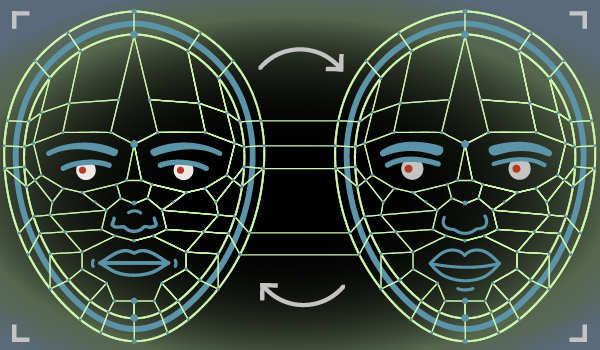AI in Law Firms: The Role of Artificial Intelligence and Machine Learning in the Future of Case Management

In a time when machines are learning, analyzing, and performing more and more complex tasks, how can law firms take advantage of it, and how will machines change how case management is handled?
It’s a very long question with a lot to unpack. Law firms have generally been slow to adopt new technologies, but signs suggest that’s changing. AI is certainly more efficient at certain tasks, and despite the fears that AI might replace lawyers – GPT-4 passed the Uniform Bar Exam in March 2023 with a better score than the average student – the truth is that it’s a tool that can make lawyers, law firms, and even case management software more effective.
Which AI Tool for What Business Process?
The first thing a law firm must consider when it’s thinking of adopting an AI tool is what kind of tool or AI it needs for the business process it’s performing. That necessitates at least a passing understanding of what “AI” actually entails.
Artificial Intelligence, unsurprisingly, isn’t simple. There are many types and subsets of AI and tools. For example, most people have at least heard of ChatGPT. That is a generative artificial intelligence – the GPT stands for “generative pretrained transformer.” Generative AI uses natural language processing (NLP), another branch of AI and a form of machine learning (which is also a subset of AI in general) to create new content based on data it can analyze.

Creative law firms can use multiple different AI tools to impact, enhance, and improve their workflows. Their case management systems already are. It’s not a question of “if” AI can help your firm improve its business processes and legal services. It’s a question of “how much.”
Legal Process Management and AI
Let’s broaden the scope of the discussion for a moment. Law firms have two general types of processes: business processes and legal processes. The former includes things like confidential client data management and security, human resources, and marketing. The latter includes anything pertaining to the management of a case, from discovery and legal research to writing briefs and document reviews. AI can help with both types of processes, just as case management software often does.
Legal professionals are almost always pressed for time. Anything that can trim minutes, hours, or days off the time it takes to get the job done, the brief drafted, the case law researched, or the trial preparation done enables greater focus on the part of law practice that interests lawyers most.
AI tools are taking on many of the tedious tasks, so lawyers can focus on what AI cannot help with; creativity, abstract thinking, compassion, empathy, and focusing on the human context of a case.
Law firm leaders can look forward to an AI solution for many day-to-day, repetitive, or heavy-lift analytical tasks. And it’s not the distant future. The use of AI in law firms is happening right now – in case management software (CMS).
Advanced CMS, like GrowPath, may use machine learning. The Oxford definition of machine learning is “computer systems that are able to learn and adapt without following explicit instructions, by using algorithms and statistical models to analyze and draw inferences from patterns in data.” It’s used to perform tasks like:
- Natural language processing (NLP)
- Image and video recognition
- Fraud detection and cybersecurity
- Recommendation systems and personalized marketing
GrowPath, for example, currently uses machine learning AI together with our patented logic tool to automatically weigh the facts of a potential case and to project case value. This allows intake reps to generate a lead score in real-time – without an attorney’s involvement.

NLP is a subtype of machine learning. It’s another layer of capability. According to Amazon Web Services, NLP can:
- Process, analyze, and archive large documents
- Analyze customer feedback or call center recordings
- Run chatbots for automated customer service
- Answer who-what-when-where questions
- Classify and extract text
As a powerful tool, AI is not just novel or important. It’s necessary. According to the Thomson Reuters Institute, IBM estimates that 2.5 quintillion bytes of data are being created each day. That’s beyond the capability of any human being to sift through in a lifetime, much less billable time – and it does not include the data created to this point. Law firms are swimming in data, and will and do need AI tools to help them analyze it all.
Now imagine an AI that can participate in a video call, verify a client’s identity via face and voice recognition, understand their questions, analyze their intent, ask and answer basic questions, flawlessly record data to a case management system, and route the client to a paralegal or attorney who can help them immediately. Imagine diving into hundreds of years of case law and finding a legal needle in the case law haystack in the time it takes most people to type the search term and press Enter.
It’s much closer than you think. Some of it is happening right now.
Case Management Software and AI
The beauty of AI tools is that they can be unintrusive and entirely available to a user when needed. Imagine an assistant that sat in the background that watched how tasks were completed, identified patterns in both data and actions, and generated suggestions, reminders, and corrections based only on the data to which it was exposed. Or that could analyze depositions and find patterns to support a legal theory.
That’s a light version of machine learning. Case management systems and law firms are already using that and more. If case management software is a factory and lawyers and staff are workers, AI is just another worker. A machine learning AI enhances the effectiveness of all the other workers and the factory itself.
For example, let’s say you’re working on a very complicated and tenuous litigation case years in the making. If you email the client every Monday like clockwork around a certain time, but for some reason didn’t on this particular Monday, your CMS will use AI to see the discrepancy in the pattern and generate a reminder to email the client. It can also write boilerplate emails, motions, and other legal documents because it can analyze however many hundreds or thousands of them you have in the system, saving you time. Document proofing that might take a lawyer an hour, an AI can perform in a second.
The Future of Case Management Software: New Capabilities, New Possibilities
The only thing for certain about AI is that it’s going to profoundly change how we work, and not just at law firms. The legal industry as a whole will change to include AI. How you practice law will change, regardless of how large or small your law firm is.
Remember: AI is already doing legal research (machine learning AI and NLP) and drafting briefs (generative AI). Natural language processing technology, known commonly as chatbots, are interacting with clients and other case participants, answering non-legal questions, and performing other interaction tasks.
Regardless of the type of AI or task it’s given, the case is the case, and it still needs an attorney to litigate it and a case management system to keep documents, communications, and tasks in order across multiple users and cases. The question may be, will AI technologies be users of case management software or an integral part of it?
Can AI Replace Lawyers: The AI’s Answer

Eran Kahana, attorney and fellow at the Stanford Law School, posed the question directly to ChatGPT. Despite GPT-4 passing the bar, the answer was unambiguous:
“AI can be used to assist with legal research and document analysis, but it is not currently capable of providing legal advice on its own. Providing legal advice requires a deep understanding of the law and its application to specific situations, as well as the ability to evaluate the risks and potential outcomes of different courses of action. This is a complex task that requires knowledge and judgment that can only be provided by a trained and licensed legal professional. AI can be used to assist with tasks such as searching through legal documents and identifying relevant cases, but it cannot replace the expertise and judgment of a human lawyer. In the future, it is possible that AI may be able to assist with more complex tasks, such as predicting the outcomes of legal cases, but it is unlikely that AI will be able to fully replace human lawyers in the near future.” -from Generative AI: Its Impact on AI Legal Advice and AI Computational Law Apps – CodeX – Stanford Law School
The Drawbacks of AI in Law Firms and Case Management
There are many obvious potential risks of using AI in law firms, as well as some very subtle issues that lurk just behind. Let’s set aside the 800lb elephant in the room – the unlicensed practice of law. AIs can’t do most legal of legal work. Humanity, compassion, and context are beyond their capability.
AI tools also have the ability to do and create things at alarming speeds and remarkable confidence – even if it is misplaced. Even the AI’s answer to the question above doesn’t ring with sincerity. It’s about what you’d expect a Google search to return.
However, much more convincing are the deepfakes. Much more concerning are the ethical restraints or lack thereof. AIs can generate realistic moving images of people with ease. Language and recognition software can learn to imitate a person’s voice with barely any audio to go on. What of consent? What of authenticity? Rights to intellectual property and identity can easily be trod upon.

Case management software’s authenticity is accomplished both through cybersecurity features and through the ethical constraints of its individual users. What if an AI misunderstands a request and a document review becomes a document alteration? Would anyone know? The case management software of the future will have to contend with this kind of conundrum and many we cannot yet foresee.
AI Isn’t Coming, It’s Here, and We’re Finding New Ways It Can Help Your Law Firm
As a technology startup, GrowPath has a good bit of history with innovation. We have walls of patents that hang in testimony. Our goal is to ensure that our clients – law firms like yours – have the most reliable, compliant, and helpful tools to help you get the cases you want and work them faster than your competitors can.
That applies to AI as well. We believe that AI tools are going to be necessary for legal professionals who want to be competitive in the legal industry. The potential benefits are too great to ignore. Our task now is to continue to determine how best to integrate AI and case management software to make law firms more efficient.
Read More: Artificial Intelligence and the Future of Law